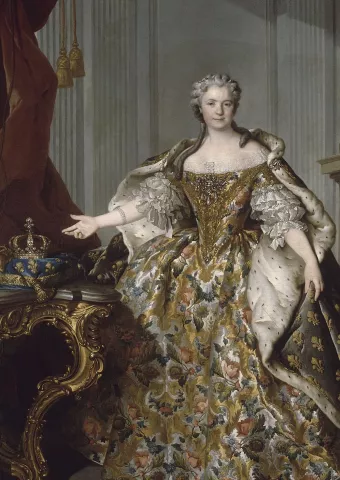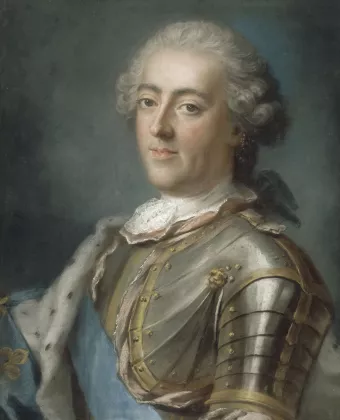With a lively yet serious spirit, the Queen was a highly cultivated woman who fulfilled her royal duties with dignity and attached great importance to maintaining a court “etiquette”, or protocol, every bit as rigorous as that which prevailed during the reign of Louis XIV. Marie Leszczyńska was chosen in 1725 to marry the young Louis XV, who had originally been betrothed to the Infanta of Spain. Once the Infanta was dismissed as being too young to bear children, attentions turned to the Princess of Poland, seven years older than the King.
In 1726 the Queen tried to offer her support to the Duke of Bourbon, Prime Minister and the chief architect of her marriage, but in doing so drew the ire of Cardinal de Fleury, who exerted considerable influence over the King. Thereafter she stayed out of the King's affairs and played no further political role. Gradually abandoned by Louis XV for his mistresses, she became increasingly pious and lent her support to various charitable works, including helping to spread the devotion to the Sacred Heart. The King nonetheless retained a genuine affection for his wife. Devoted to providing an education for girls from poor backgrounds, she founded the Queen's Convent (later to become the Lycée Hoche) in the town of Versailles, in buildings designed by the architect Richard Mique. She was fond of fine food and had a good sense of humour, and was most comfortable among her circle of close friends. She enjoyed reading, drawing and music. She organised concerts in the Peace Room and helped to maintain a flourishing musical environment in the Court.
ANECDOTE
Gradually abandoned by Louis XV for his mistresses, she became increasingly pious and lent her support to various charitable works [...] The King nonetheless retained a genuine affection for his wife.
The Queen's maternal instincts were somewhat limited, and her interactions with her many children were mainly restricted to the ceremonial activities which framed life in the Court. Mesdames, her daughters, occasionally complained about this perceived coolness and distance, which contrasted with Louis XV, who was a more attentive and affectionate father. The Queen nonetheless oversaw the moral and religious education of her son, the Dauphin Louis-Ferdinand, who died prematurely in 1765. She passed away a few years later in 1768.











